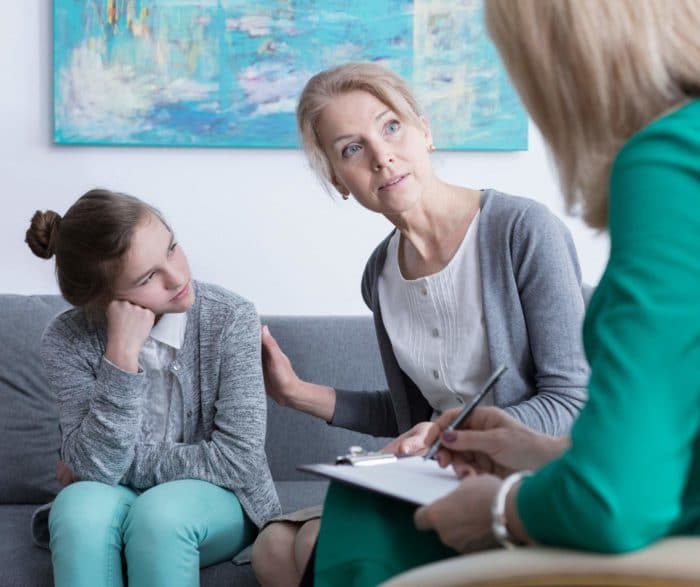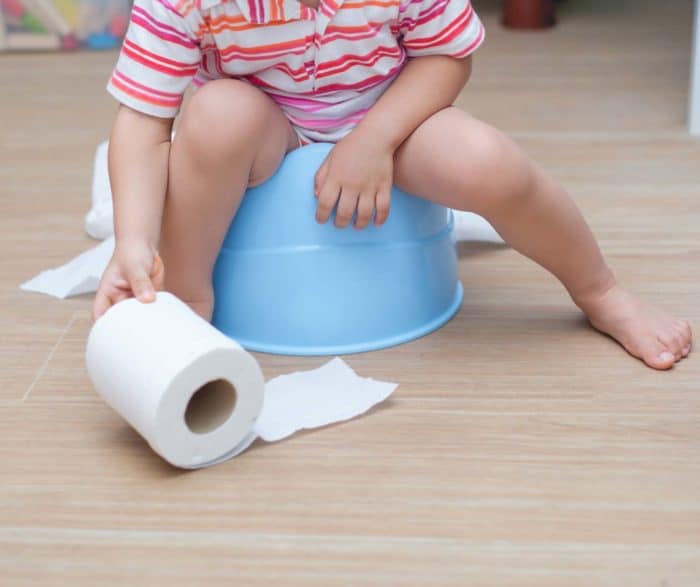“What would you ask your pediatrician if you could sit and have an extended chat with them?”
We asked, you answered, and now we are getting answers for you! After we posted the question above on social media, we took your questions and had a Q&A session with Dr. Janelle Lee and Dr. Maria Martinez-Ramos, both pediatricians from Lakeland Regional Health.
Dr. Lee has been practicing as a pediatrician since 2009. She serves patients in Lakeland at the Grasslands campus on Harden Blvd., and in Winter Haven at the Lakeland Regional Health offices on E. Central Avenue.
Lakeland Mom is proud to partner with Lakeland Regional Health as they serve families in our community.
Q: What temperature is considered a fever for a newborn and what is the most accurate way to check temperatures at different ages?
With temperature taking, we recommend that from birth to 3 months you use a digital thermometer to take a rectal temperature. You may also use a temporal artery thermometer. Older children may have their temperature checked with a digital thermometer under the arm, or in children over 4, in the mouth. Digital ear thermometers may be used from 6 months and up.
A fever is 100.4 F or higher on the infant setting, or when doing a rectal temperature.
Q: Is it really necessary to burp a baby after feedings?
Yes, it is necessary to burp a baby after feedings to ensure that all the gas is cleared from their tummy. Lots of babies will burp on their own, but it is still a good idea to burp them to try and prevent them from spitting up their feeding.

Q: Babies and eyesight – what are some eyesight milestones, when should they start focusing on things?
At birth, babies have small pupils, and are sensitive to bright light. Their central vision is still not well developed, but they can see things next to them with peripheral vision, and their overall vision is about 20/400. After a few weeks the baby may focus on things right in front of them. By about 2-4 months your baby should be able to follow objects with their eyes both vertically and horizontally, and hold eye contact for longer time. If you think your babies eyes are not moving together well by this age, you should consult your pediatrician. Depth perception increases from 5-8 months and your baby may smile at you from across the room. When babies are 9-12 months old and ready to walk, they can judge distances well, and are able to grasp small things between forefinger and thumb.
Q: A teacher suggested my child may have ADD/ADHD. What do we do from here?
Schedule an appointment to discuss it with a Pediatrician. They can help you decide if your child needs an evaluation for ADHD. It may take a couple of sessions or seeing a specialist to determine if your child truly has ADD/ADHD.

Q: Do you know of any local resources for helping a child with ADHD? Or their parent?
It is important to find a good family therapist or psychologist to help with support and resources. If you are searching for a fantastic Child and Adolescent Psychiatrist, feel free to learn more about Dr. Aarti Patel.
It is also important that the child’s school is helping to support the child’s education through a 504 plan or IEP.
In addition, community organizations and companies, such as Huntington Learning Center, offer workshops for parents.
Q: How do you know if a newborn has a urinary tract infection?
Symptoms can include fever, fussiness, a foul or strong urine smell, crying during urination, vomiting or poor feeding. Contact a Pediatrician’s office if your newborn has any of these issues.
Q: How do you test for jaundice?
A bilirubin blood test is used to check for jaundice. Most hospitals also utilize a transcutaneous bilirubin scanner to determine the need for a blood test.
Q: What age should we monitor babies for vitamin deficiencies if it runs in the family?
Vitamin deficiencies are not routinely screened and it is recommended you speak with a Pediatrician about your particular concerns for vitamin deficiency. Breastfeeding infants should take 400 IU daily of vitamin D as a supplement to prevent Rickets and vitamin D deficiency.
Q: Any tips on potty training? My daughter is almost 4, and she pees in the toilet fine but still poops in her pants. I feel like we’ve tried everything.
The key to potty-training is keeping a schedule. When the child wakes up, after meals and snacks, and before bedtime is when you should place your child on the potty. Have a reward system for when the child goes on the potty. When the child is home, leave her in underwear.
Make sure your child is not constipated. Some kids will withhold their stools when they are having a hard time pooping. Visit a Pediatrician if you think your child may be constipated.

Q: How can I tell if my 15-month-old has an ear infection and when should I take him to the doctor?
Some kids will pull or dig in their ears. Fussiness, poor feeding or fever are also symptoms to watch for. Take your child to the doctor if they are not feeling better with a couple of days of fever or pain reliever or if they are not looking well.
Q: My son turned 2 recently and is hitting! How do we break this habit and is it normal?
Aggressive behavior like hitting and biting peaks around age 2. Children act out for different reasons, sometimes to defend their toys, because they are tired, or not able to verbalize their needs well. Regardless of why they do it, you need to show them that it is not acceptable behavior. Calmly explain to your child that hitting is not nice. Put your child in time out whenever he hits. Take away a disputed toy or possession to show that when he does this he does not get a positive result. Most children will stop these behaviors as they get older and are shown it is unacceptable.

Q: Why is “fever free for 24 hours” the typical standard for sending kids back to school after an illness?
Typically by the time the fever resolves in an illness, the person is usually feeling better. Although they may still be contagious, depending upon the illness, usually the infection is resolving by the time the fever has been gone for at least 24 hrs. It is recommended that children continue to use good handwashing practice and not share food or drinks if they have been recently sick.
Q: My son is 5 and is very shy. Should I be worried, and can I do anything to help him overcome this?
You should be concerned if your child’s shyness is causing anxiety or depression. If your child is withdrawn or having emotional meltdowns out of proportion to the social situations, counseling or therapy may help. You can also support your child by praising positive social behaviors, such as making good eye contact or responding to others, or participating in group play. It is important to expose your child to social situations and not overly coddle your child, but also not pressure your child too much if they are not feeling comfortable. Good communication is key, allowing your child to express their fears about certain situations and being supportive.
Q: My son’s 5th birthday is in early August. Should we hold him back regarding school?
This truly depends on your child’s readiness and maturity for kindergarten. Studies show that holding a child back may not be the best thing. If your child attended a pre-K program, speak with his teacher about his readiness for kindergarten.

Q: What do studies show is too much technology use for kids? Curious about the short term and long term effects on the brain from social media, videos, etc.
Both the American Academy of Pediatrics and the World Health Organization recommend no screen time under the age of 1 year, with very limited use from ages 2-5 years. Long-term studies are currently ongoing, like the ABCD study by the National Institutes of Health. Some researchers differentiate between the type of screen time, such as educational and interactive programs versus passive programs. However, there also have been studies that link obesity to screen use, as well as the fact that kids with heavy screen usage are twice as likely to be diagnosed with depression or anxiety.
Short and long term effects include less emotional stability, shorter attention spans, trouble completing and staying on task and more trouble making friends. So in general, “ less is more,” and be sure to screen what type of activities your child is doing, as well as make sure they are getting enough exercise and play.
Thank you to Dr. Janelle Lee and Dr. Maria Martinez-Ramos for answering our questions! If you’re looking for a pediatrician, call 863.284.5000 to make an appointment with Dr. Lee.



